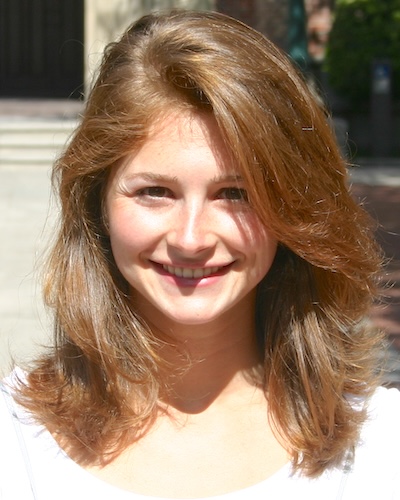Supporting Coursework

January 31, 2011
by Amanda
To complement the clinical coursework, there are a few classes that enhance your ability to understand client needs and address them from an occupational science perspective.
Throughout the clinical coursework, there is supporting coursework to enhance your understanding of occupation and multiple dimensions of practice. To begin, there is a medical lecture component to your coursework, the purpose of which is to introduce students to varying diagnoses and conditions. Guest lecturers that specialize in working with various populations are the ones delivering the course content. The information from this course serves as a great reference. As an entry-level practitioner you are faced with so many new populations and your notes from school are something you will return to refresh your understanding and knowledge of the details of the conditions you see in practice. What I also found fascinating was when a professional from another discipline presented his or her perspective of a diagnosis. For example, there was a bariatric surgeon presented on obesity. From his professional perspective, bariatric surgery was the answer to the obesity and type II diabetes epidemic. This compares with the occupational science and therapy perspective that would intervene through understanding an individual’s occupational habits, roles, and routines and develop strategies to address the chronic weight management issues that the individual faces. Both interventions require major lifestyle changes, depending on the individual, one, the other, or both interventions may be appropriate. From these lectures, you begin to build your sense of how OT would approach a condition compared to another professional. You see how important the OT perspective is in healthcare.
Occupational science is an academic discipline devoted to the systematic study of the form, function and meaning of occupation. USC’s Division of Occupational Science and Occupational Therapy is committed to understanding the human experience of occupation in order to apply that understanding to the practice of occupational therapy. Coursework in occupational science is part of the curriculum for occupational therapy students at USC. Students explore the various dimensions and interdisciplinary knowledge that underlie occupation. Topics include how routines, habits, culture, environment and preferences contribute to health and well-being. Guest lecturers present how they have taken concepts from occupational science and developed programs that increase well-being, such as in the programs at the USC Faculty practice and in the Well-Elderly Study. As a student, you begin to see occupation through different lenses and how to identify supports and barriers to occupation. The study of occupational science informs occupational therapy practice through asking how we may best understand and enable occupational performance.
The Skills for Occupational Therapy coursework that I previously wrote about in a blog post continues in the subsequent semesters. You expand your knowledge from analyzing tasks to understanding the therapeutic relationship and how to design occupation-centered programs. I found that these classes gave a space for discussing the tough issues you may see in practice. We explored our strengths and weaknesses in terms of building relationships and how we may best serve clients therapeutically. As a therapist you are not only providing an intervention, but you are using the relationship with the client to see successful outcomes. We also had the time to discuss what we were seeing in our level I fieldworks: what we liked and what we didn’t like. Based on what I saw in fieldworks and from discussions in this class, I began to imagine how I want to be as a therapist in the future. Skills for Occupational Therapy also allows students to explore interests in program development. We had a semester-long project aimed at founding the skills for surveying a population’s needs, designing an evidence-based program, and how you would go about implementing that program. Although not required, some students realize their occupation-based program or continue on to the OTD program to run their program. Topics for this project varied from addressing returning veterans needs to the use of pets in therapy to educating other professionals about effective “sensory strategies” in pediatric settings. Medical lectures, occupational science and skills for occupational therapy all enhance one’s ability to understand client needs and how to address them in occupational therapy practice.
⋯
Next by tag Classes ⟩ What are OS/OT? ⟩
⋯





